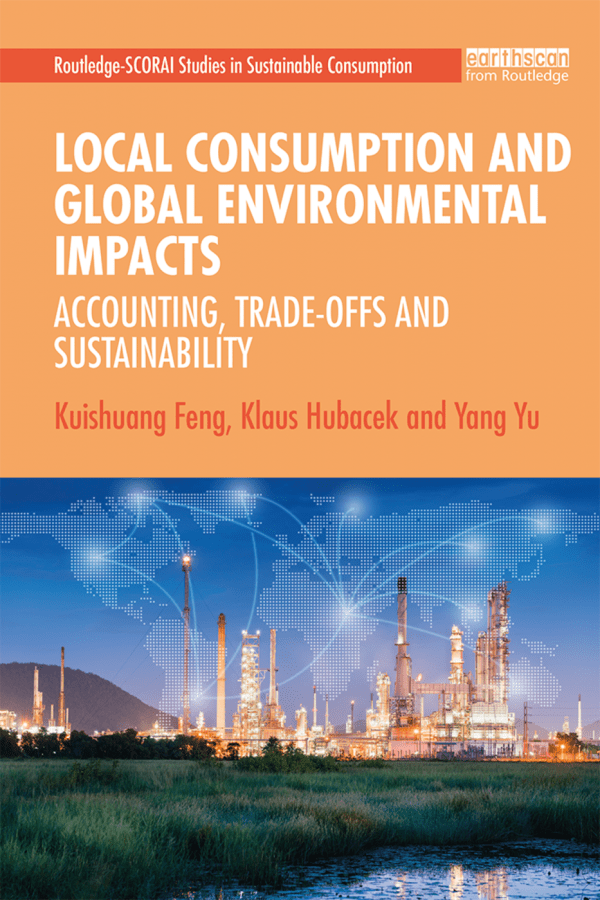Local Consumption and Global Environmental Impacts: Accounting, Trade-offs and Sustainability, 1st Edition by Dr. Kuishuang Feng
Globalization increases the interconnectedness of people and places around the world. In a connected world, goods and services consumed in one country are often produced in other countries and exchanged via international trade. Thus, local consumption, in particular in urban areas, is increasingly met by global supply chains oftentimes involving large geographical distances. As such local consumption can lead to local and global environmental change and contribute to pollution, climate change, water scarcity, deforestation and land conversions, and biodiversity loss all impacting important ecosystem services. Inequalities in consumption get translated into environmental terms: people in rich countries maintain higher incomes and more resource-intensive lifestyles, while people in poorer countries are often bearing the environmental consequences. Local decisions potentially contribute and reinforce global inequality and exploitation through global supply chains. Decision-making on environmental protection and climate change adaptation and mitigation require a better understanding of such social, economic and environmental linkages. Therefore, we need sophisticated tools to assess a range of environmental and social implications of our choices across spatial and temporal scales.
In this book, GEOG researcher Dr. Kuishuang Feng, along with colleagues Dr. Klaus Hubacek and Dr. Yang Yu, describe how local consumption, particularly in urban areas, is increasingly met by global supply chains. These supply chains often extend over large geographical distances and have greater global environmental impacts, contributing to pollution, climate change, water scarcity, and deforestation. This book provides an overview of key methods of analysis, including Multi-Regional Input-Output analysis and Life Cycle Assessment. Subsequent chapters connect local consumption to the global consequences of different environmental issues. Each issue is addressed in an individual chapter, including case studies from China, U.S. and UK.
More information about the book can be found on the Routledge website.
Published on Thu, 03/12/2020 - 15:31


